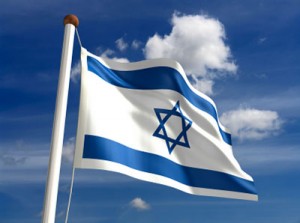 It may�take weeks for a new coalition to emerge, but the new government has pressing issues piling up in its in-tray
It may�take weeks for a new coalition to emerge, but the new government has pressing issues piling up in its in-trayIran
Despite Israelis being told repeatedly that the Iranian nuclear programme presents an existential threat to the Jewish state, the issue barely surfaced in the election campaign. Nevertheless,�Binyamin Netanyahu's famous "red line", drawn across a cartoon bomb at the United Nations in September, is likely to be reached in the late spring or early summer unless diplomatic efforts and sanctions produce results, according to Israeli officials.
Some insist that military action will then be required to halt the programme. The big question remains: will�Israel�be prepared to act unilaterally if the US decides against a military strike? Netanyahu made his views clear, but most of the military and intelligence community in Israel � along with the US and Europe � oppose unilateral action.
A major factor is who will be Israel's next defence minister. Ehud Barak, the incumbent, did not run in the election, although he could be reappointed as a non-elected minister. Netanyahu and Barak were brothers-in-arms on the Iranian issue, although there were signs in recent months that Barak was cooling on unilateral military action. The prime minister will want to appoint someone with a similar outlook on Iran.
Palestinians
There is little expectation on either side of significant movement on the Israeli-Palestinian issue. Despite paying lip-service to the principle of two states for two people, Netanyahu has done almost nothing to advance it as a reality. In fact, accelerated settlement expansion has come very close to killing off the two-state solution for good, say many diplomats.
What happens next depends in part on the complexion of the new coalition.�Jewish Home, expected to be the third biggest party in the parliament, has called for the annexation of large swaths of the West Bank and flatly opposes a Palestinian state.�Tzipi Livni's Hatnuah party�is the only potential coalition partner that has advocated meaningful negotiations on a permanent two-state solution.
There is no sign that settlement construction will slow, let alone stop. Meanwhile, the Palestinians are considering their next moves, which could include recourse to the�international criminal court.
The US and EU
Recent reports�suggest President Obama is unwilling to invest fresh political capital in the Israeli-Palestinian issue in the face of Netanyahu's intransigence. Relations between the two leaders have continued to deteriorate. Obama may allow the EU to take a more proactive role on the "peace process" while the US focuses on regional security and the Iranian nuclear programme.
European diplomats are frustrated with the long impasse and fear that the opportunity for a two-state solution is closing fast. Britain and France are reportedly pushing for a new peace initiative after the Israeli election. However, there appears to be few fresh ideas on the table
Israel's increasing political and diplomatic isolation is a serious cause for concern among the country's diplomats and liberal commentators. But many rightwing politicians dismiss both international pressure and criticism of settlement expansion.
The region
The post-revolution Muslim Brotherhood-dominated government in Egyptbrokered the ceasefire�between Israel and Hamas following the eight-day conflict in Gaza in November, but Israel remains concerned about the durability of its 33-year-old peace treaty with its southern neighbour. The recent disclosure of comments made by Egyptian President�Mohamed Morsi about Jews�being the descendants of "apes and pigs" has fuelled fears of growing anti-Israeli or anti-semitic sentiment. Israel has largely completed a vast steel fence along its southern border to deter the smuggling of migrants, weapons and drugs, but it remains worried about the presence of Islamist militants in the Sinai desert and Cairo's lack of control in the area.
Israel has anxiously monitored the Syrian civil war and has taken steps to reinforce the boundary along the Israeli-occupied Golan Heights. But the situation will become acute if Syria's stockpile of chemical weapons falls into the hands of Hezbollah in Lebanon or Islamist militants in Syria. Israel has promised military action if this happens.
Relations with�Turkey�need repair. It is an important regional ally with whom there has been a serious breach since Israeli commandos�killed nine Turkish activists�on board the pro-Palestinian flotilla in May 2010. Turkey has demanded an apology; so far Israel has refused.
Economy
The election was triggered when the coalition government failed to agree a budget. Last week it was disclosed that the deficit had ballooned to 39bn shekels (roughly �6.8bn), almost double the forecast. Among the austerity measures the new government will have to consider are tax increases, raising VAT, reductions to child allowances, and public sector cuts. The government will be keen to avoid a return of the massive "social justice" protests across the country 18 months ago.
Conscription of the ultra-orthodox
Another combustible issue shelved by the election was the push to end the exemption for young ultra-orthodox Jews from compulsory military service. The slogan "Sharing the burden" has become a mantra for secular parties, but Netanyahu feared that ultra-orthodox parties in his last coalition would walk out and trigger its collapse if a new law was introduced.
By The Guardian
The Iran Project is not responsible for the content of quoted articles.










